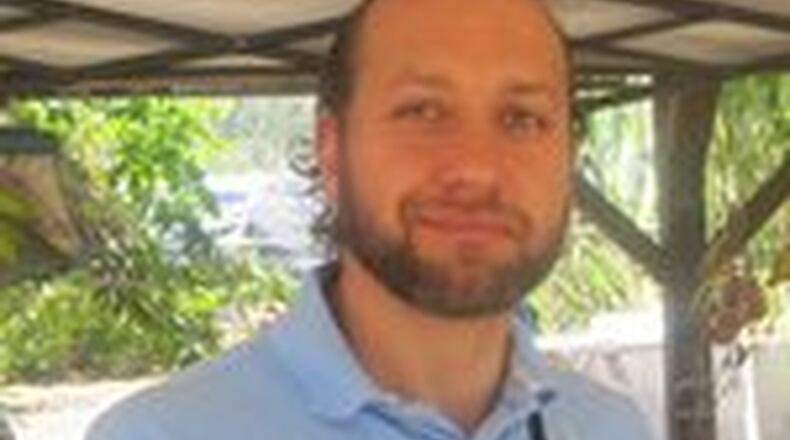After an investigation by university police, Kashou was charged in Fairborn Municipal Court with sexual imposition, but pleaded guilty to misdemeanor disorderly conduct in April, putting him on probation and mandating he have no contact with the victim for two years.
RELATED: Wright State professor resigns while under investigation
Calls to Kashou’s office and listed home numbers in Dublin, Ohio, were not returned, nor was a call to his attorney in the Fairborn court case.
The student alleged that on Sept. 8, 2016, Kashou hugged her, rubbed her shoulders, pulled her shirt down and touched her chest, kissed her neck and tried to kiss her on the mouth, according to a Feb. 6, 2017, report of the investigation by Matthew Boaz, WSU’s director of equity and inclusion.
Boaz’s report says a student should be able to meet with faculty “without being touched, hugged, massaged, or kissed in a manner that feels “creepy” and negatively impacts on the student’s perception of her access to resources (at WSU).”
Kashou defended his actions in a Feb. 21 letter to Assistant Provost Steven Berberich. He said the student contacted him requesting a demonstration of his work in touch therapy and never expressed discomfort during the interaction.
RELATED: Former Children’s doctor indicted on sex charge
“I would like to reiterate that throughout this entire session, I explicitly would ask permission before I made any physical contact of any sort to make sure (redacted) was comfortable. (Redacted) explicitly indicated she was completely comfortable and her physical response or ‘body language’ mirrored that fact,” he wrote.
But in a March 3 memo, Berberich wrote that he found no “credible basis” to conclude Kashou’s actions were representative of his research. He found Kashou had violated university policy with female students on more than one occasion, including another incident in which he had a consensual but undisclosed relationship with a student, according to Berberich’s report.
Kashou responded that he had a consensual relationship with a 33-year-old student who was almost his age.
Kashou was suspended with pay when the allegations surfaced. After the internal probe, he was told not to come back to work until he finished Title IX training and when he did return the university would prohibit him from conducting any physical contact demonstration without at least two observers present.
But in April the university notified Kashou again that he was suspended with pay, noting that it had become aware of the restraining order against him.
At least one administrator recommended tougher punishment. In a May 4 letter to interim-President Curtis McCray, the dean of the College of Engineering and Computer Science, Nathan Klingbeil, recommended that Kashou be placed on unpaid leave “at the earliest possible date for ‘personal conduct which presents a serious threat to health or safety of any person in the university community.’”
Klingbiel recommended Kashou be placed on unpaid leave for a year and then, if the court order is still in place, be allowed to use personal leave without pay or be fired.
Kashou responded with a four-page letter saying he isn’t a threat to anyone and only pleaded to the disorderly conduct charge to bring the case to a close and continue with his career.
“WSU needs to know, that my primary concern was being able to return to work and I was adamant on having a trial to prove I did not commit the acts I was accused of,” he wrote. “But once the State of Ohio agreed to reduce my original charge to this low-level, non-serious offense, I decided to tender a plea just so I could return to work.”
He followed up with a letter on June 8 suggesting he could comply with the court order and keep teaching if the university would accommodate him with an off-campus office and allow him to attend meetings electronically.
Wright State officials contacted for comment said Kashou remains on paid leave, but did not answer any specific questions about the case. He is currently listed in Wright State’s directory as an assistant professor of biomedical, industrial and human factors engineering.
Kashou was paid $87,068 last year, according to the I-Team Payroll Project database of public employee pay.
MORE FROM THIS REPORTER
Continuing coverage
This article is part of an ongoing examination into local campus safety and the ways in which local colleges and universities have handled accusations of sexual assault and misconduct on their campuses. For previous articles go to mydaytondailynews.com/campussafety.
About the Author

